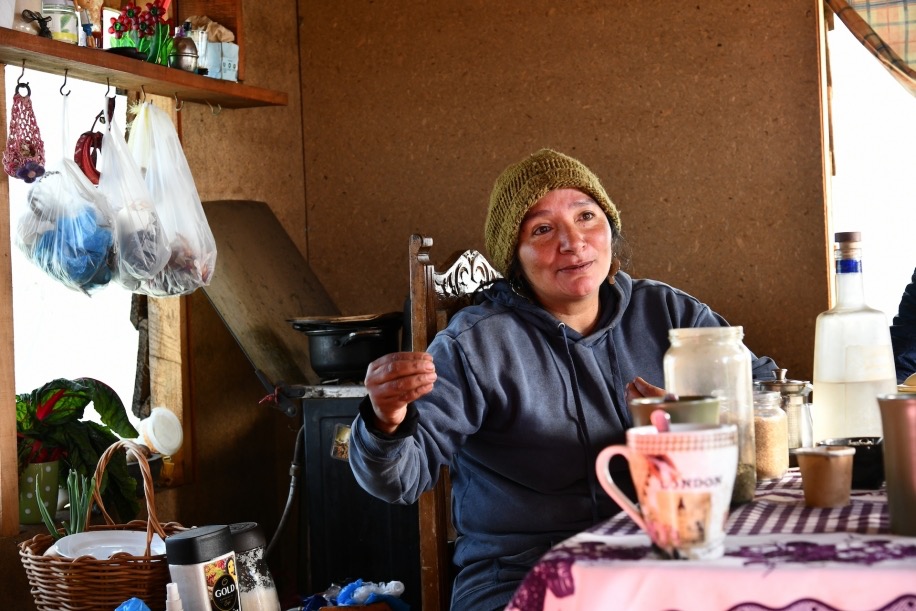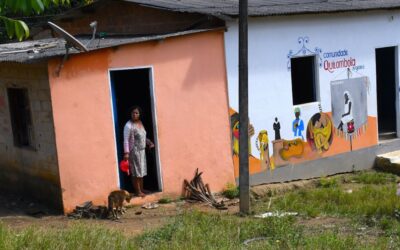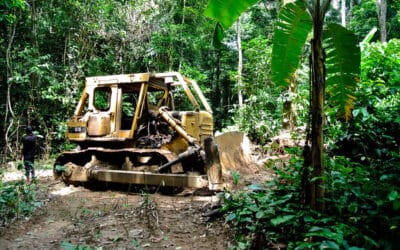Sign on Letter to President Boric of Chile demanding the repeal of the Usurpation Law which violates international Indigenous Rights law and sets a dangerous international precedent for violating Indigenous land rights
We further demand that Mapuche Sara Huincatripay be acquitted of violating this illegal law
Date: 30 January 2025
President Gabriel Boric
Palacio de La Moneda
Santiago, Chile
Cc: CONADI National Director, Álvaro Morales Marileo
Dear President Boric,
We the undersigned individuals and organizations, are writing to demand the repeal of the Ley de Usurpación (Usurpation Law), passed in 2023 by your administration, which is in direct contradiction with Chile’s international obligations under both International Labour Organization (ILO) Convention 169 as well as the United Nations Declaration on the Rights of Indigenous Peoples (UNDRIP), which Chile ratified in 2007.
We are also demanding that Sara Huincatripay, the first Mapuche woman in Arauco to be prosecuted under this law, be immediately acquitted and that no other Mapuche or Indigenous Peoples are charged under the Usurpation Law.
As you are aware, ILO Convention 169 is an international treaty that protects the rights of Indigenous peoples, particularly in relation to their lands and resources. It establishes the obligation for states to consult with Indigenous peoples on any measures that may affect them and to respect the territorial rights of peoples who have traditionally occupied and used these lands. The Usurpation Law, by criminalizing land occupations, threatens these very rights, especially for the Mapuche and other Indigenous communities who are fighting to reclaim ancestral lands, stolen over centuries of dispossession.
Furthermore, the UN Declaration on the Rights of Indigenous Peoples (UNDRIP) sets forth fundamental principles that Chile has committed to uphold. UNDRIP explicitly recognizes the right of Indigenous peoples to self-determination and to own, use, develop, and control their lands, territories, and resources as vital to their cultural survival and identity (Article 26). Additionally, the Declaration underscores the requirement for free, prior, and informed consent (FPIC) from Indigenous peoples before any project or measure is undertaken that may affect their lands (Article 32).
The Usurpation Law, by prioritizing private property rights over Indigenous territorial claims and enabling evictions and the criminalization of land occupations, directly contradicts the right to free, prior, and informed consent, as outlined in UNDRIP. This law does not guarantee a meaningful consultation process nor ensure the active participation of Indigenous communities in decisions that affect their lands. It also disregards the legitimate claims of the Mapuche and other Indigenous communities, many of whom are occupying land not out of defiance but as part of their struggle to recover territories that were historically taken from them.
The Mapuche struggle for land is not a matter of criminality—it is a matter of historical justice, dignity, and human rights. Chile’s commitments under UNDRIP and ILO Convention 169 require that your government respect Indigenous territorial rights, foster genuine dialogue, and recognize land rights as a fundamental human right for the Mapuche and other Indigenous peoples.
You must suspend the Usurpation Law and initiate a genuine consultation process with the Mapuche people and other Indigenous communities. This consultation must be carried out in accordance with the principles of free, prior, and informed consent (FPIC), ensuring that the voices of Indigenous communities are central to decisions that affect their lands and cultural survival.
Chile has a responsibility—not only to its citizens but to the international community—to ensure that its laws and policies align with its international commitments under UNDRIP and ILO Convention 169, and to build a society that respects the rights of all its peoples.
You must take the necessary steps to ensure that Chile fulfills its international obligations and upholds the fundamental rights of Indigenous peoples.
Initial List of Signatories
Global Justice Ecology Project – International
Indigenous Environmental Network – International
World Rainforest Movement – International
Biofuelwatch – United States, United Kingdom
Health of Mother Earth Foundation (HOMEF) – Africa
The Corner House – United Kingdom
Observatorio Latinoamericano de Conflictos Ambientales (OLCA) – Chile
Additional Signatories
Organización: Cooperativa agroecológica Pilkelen, Wallmapu, Chile
Red de Acción por los Derechos Ambientales RADA, Chile
Heartwood, US
Climate Communications Coalition, US
Trend Asia, Indonesia
Food in Neighborhoods Community Coalition, US
People Organizing to Demand Environmental & Economic Rights (PODER), US
GE Free New Zealand, New Zealand
American Chestnut Cooperators Foundation, US
Earth Ethics, Inc., US
Alianza por los derechos de la naturaleza, Chile
Centro INEDH, Chile
Bay Area Coalition for Headwaters, US
AbibiNsroma Foundation, Ghana
Maiouri Nature Guyane, French Guiana
Ei polteta tulevaisuutta, Finland
Environment East Gippsland inc, Australia
Environmental Policy and Sustainability Management Program (EPSM) program, The New School, US
Greenroots, US
Nuclear Information and Resource Service, US
No a la criminalización de la protesta social en Chile, Chile
Red por la Superación del Modelo Forestal, Chile
Family Farm Defenders, US
Earth Ethics, Inc., US
Jones River Watershed Association, US
Instituto para el Futuro Común Amerindio IFCA, Honduras
Slow Communities, US
Water Justice and Gender, Netherlands
Mangrove Action Project, US
Rainforest Information Centre, Australia
Colectivo VientoSur, Chile
Kentucky Student Environmental Coalition, US
Fundación Chile Sin Ecocidio, Chile
Fundacion Al Derecho, Chile
GREEN SQUAD, Croatia
Asamblea de mujeres insulares por las aguas, Chile
Ei polteta tulevaisuutta, Finland
Nature Nova Scotia, Canada
Acción por la memoria, España
RedAfros, República Dominicana
Red Dominicana de Estudios y Empoderamiento Afrodescendiente, República Dominicana
Forum Ökologie & Papier, Germany
Environmental Paper Network, International
Pakistan Fisherfolk Forum, Pakistan
Divine Web Astrology, US
LPESM Riau, Indonesia
Shaping Change Collaborative, Canada
Asian American Arts Centre, US
W’nc4Peace, US
HUTAN Group, Japan
Rainforest action group, Japan
North American Climate, Conservation and Environment(NACCE), US
ANZBIG and TMPA, Australia
Source: https://globaljusticeecology.org/urgent-action-org-sign-on-to-support-indigenous-land-rights-in-chile/




